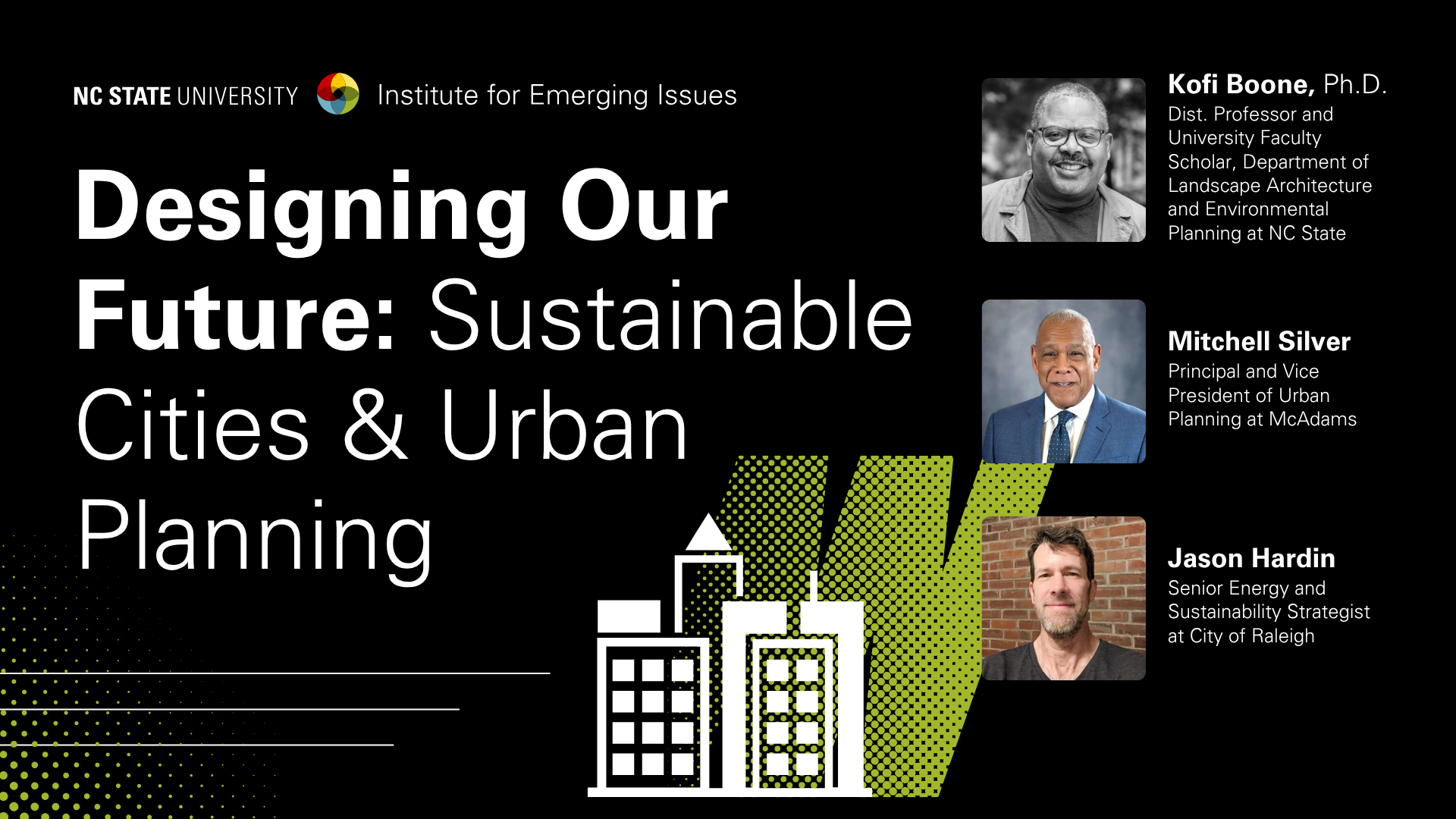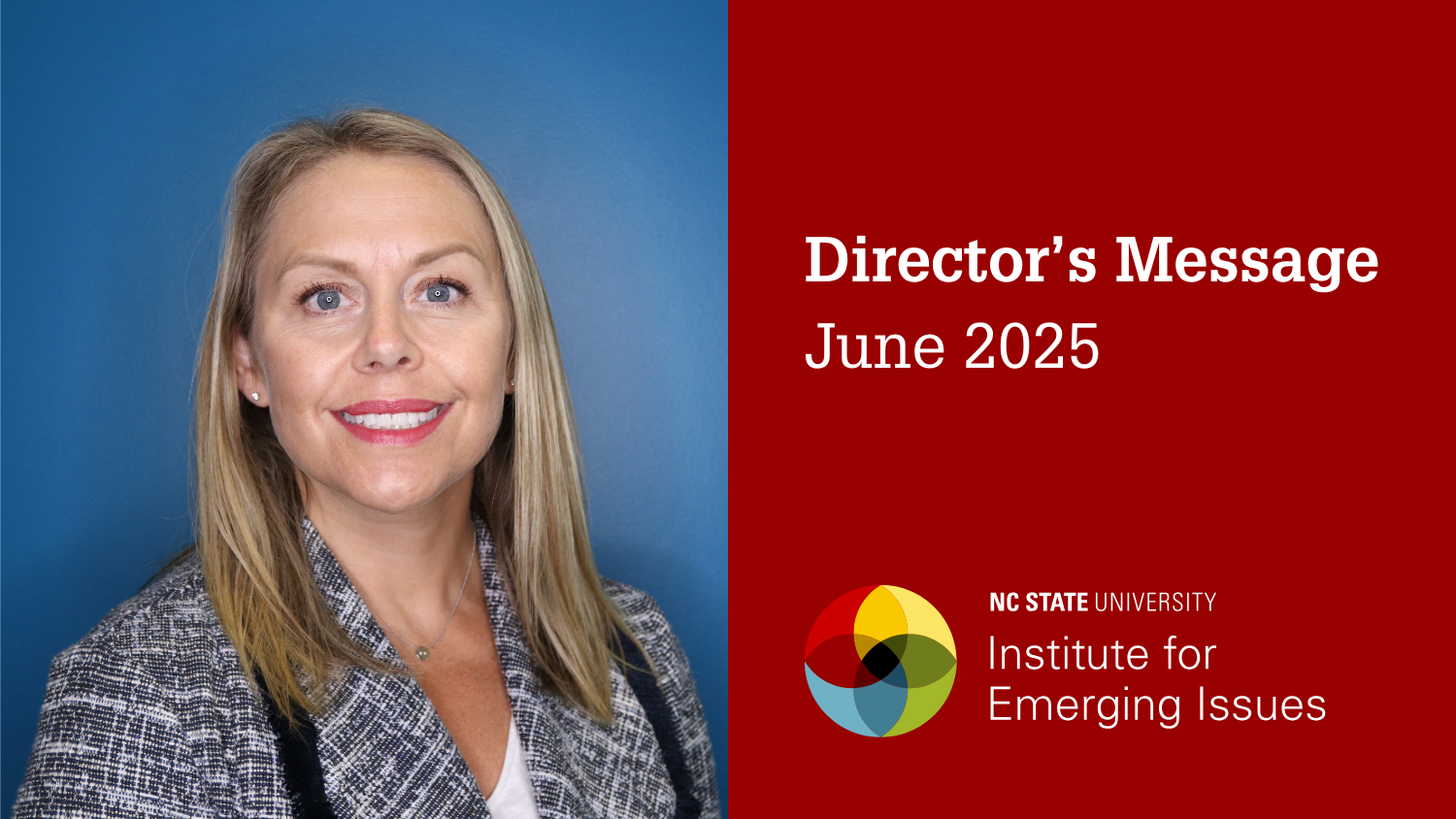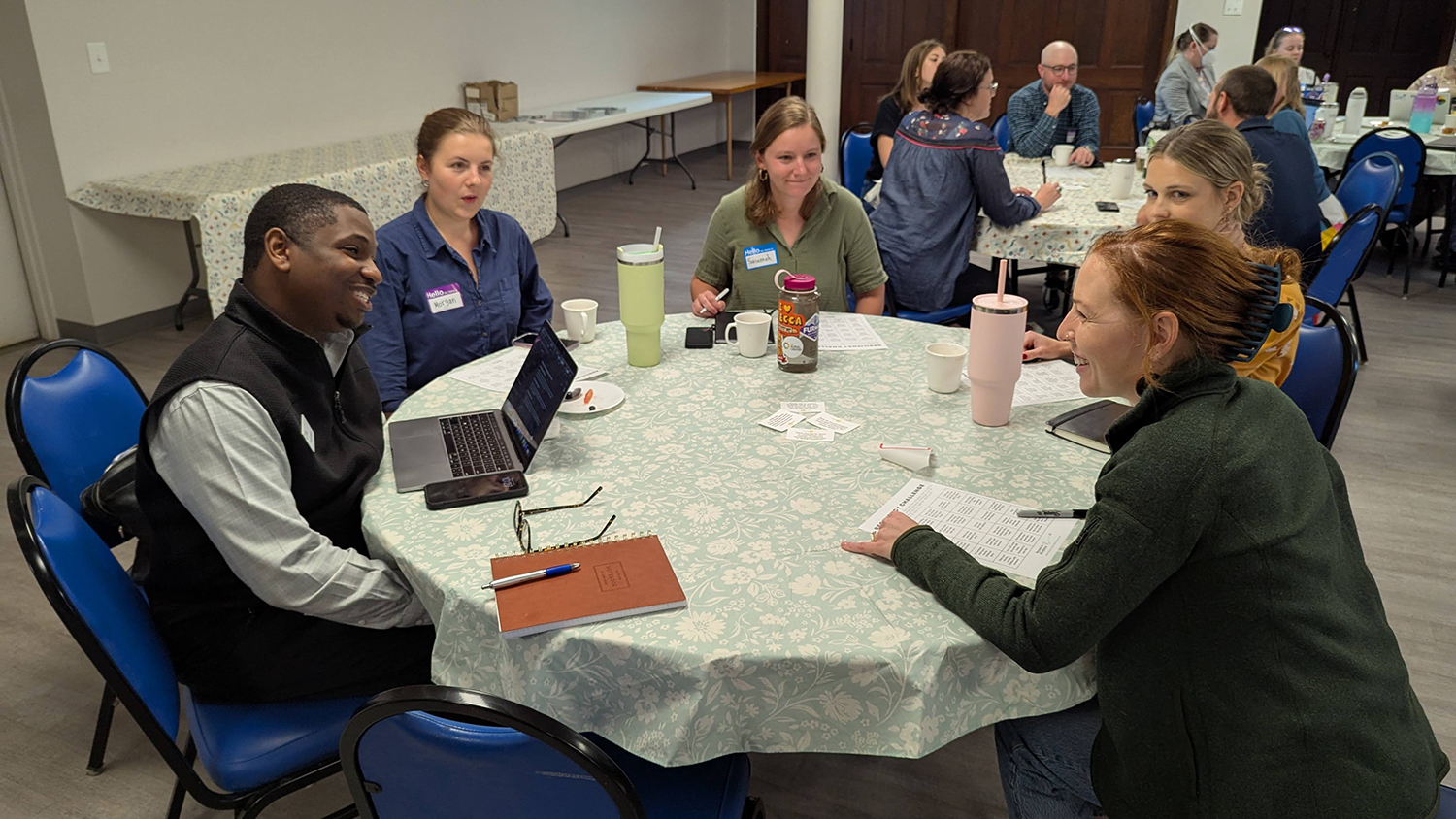College, Financial Wellness and the 2024 Emerging Issues Forum
Emerging Voices Blog Series
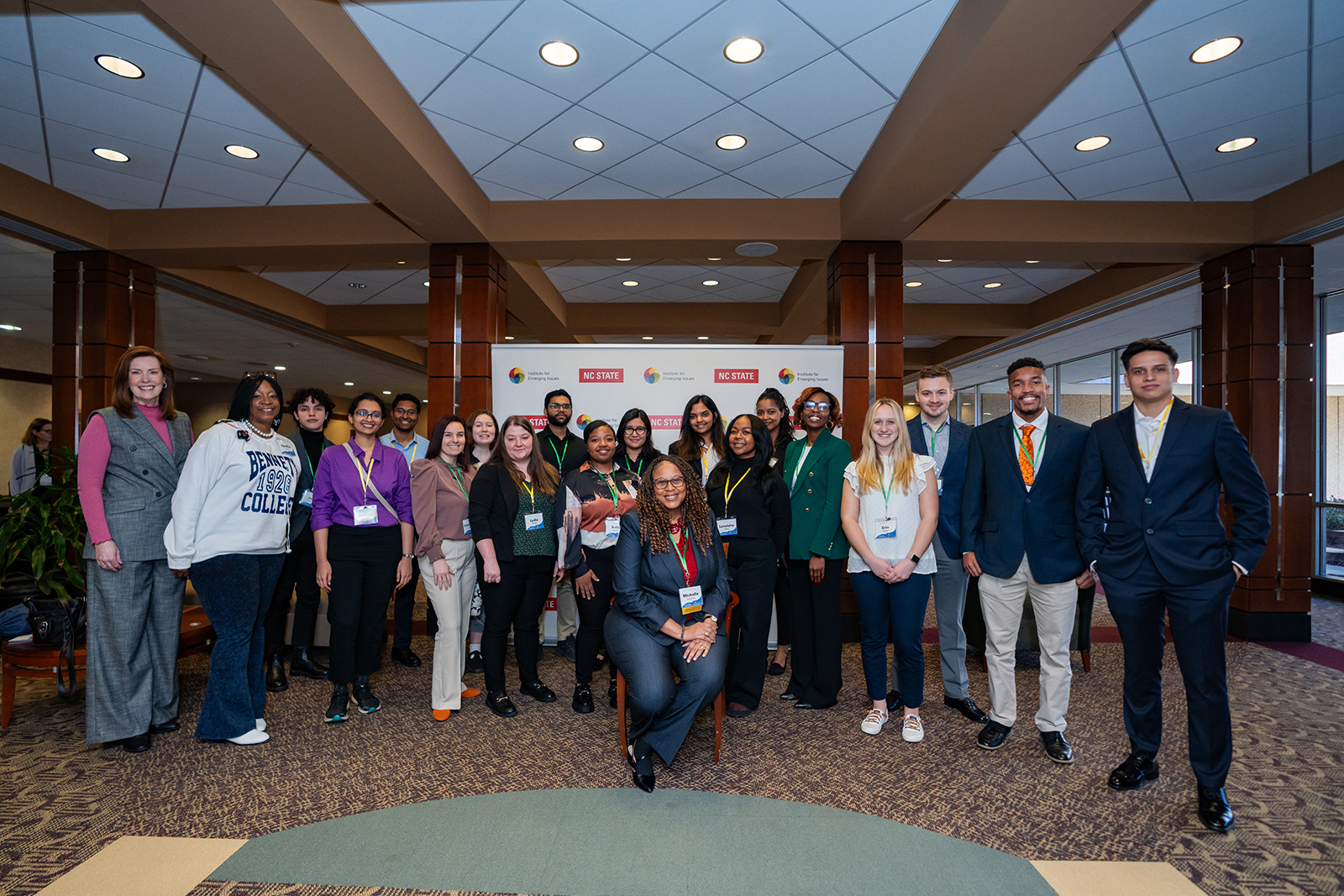
The Emerging Voices blog features stories from IEI interns, students from across the state and other up-and-coming voices about issues that matter to North Carolinians.
Since the 2024 Emerging Issues Forum on household financial resilience, I have been thinking a lot about money. I have been thinking about what it means to be a college student who is seemingly always anxious about financial decision making. I have debated what credit card I should get, and did I really spend that much money on Glenwood last weekend? Is meal-prepping really saving me dollars, when eating out—if we are being completely honest—is saving me some precious time to work on assignments?
As these questions swam around in my brain, I had the opportunity to talk to four other college students across the state about their financial wellness and perspectives on the topic of the 2024 Emerging Issues Forum.
Lydia Phelps is a Masters of Social Work (MSW) student at the University of North Carolina at Chapel Hill with a focus on community, management and policy practice. Geraliz Felix is a third-year accounting major at NC State University and president of the Student Financial Literacy Club. Juan López Flores is a business administration major at NC State University. AyeSha Brock is a journalism major at Bennett College and is a non-traditional adult learner.
The following is written as a Q&A, with answers edited for brevity.
In your opinion, what are college students strongest and weakest at when it comes to financial literacy?
Lydia: I think in college you definitely learn how to budget. Learning how to budget is definitely something that I know I learned in college, and I feel like I’ve seen other people learn how to make “struggle meals” and things like that.
Geraliz: Definitely following a budget is something that I’ve seen students struggle with a lot, or getting into debt when they don’t really have to. Determining “wants” versus “needs.” But I’ve also seen in my own experience that college students are also mindful, especially if they are working.
Juan: It depends because different people have different habits, and it depends on where you come from, your background. I think students are strongest at being able to get by with little money, but I think college students, in general, could be a lot better at preventing themselves from getting there to begin with. Like having some cushion within their finances.
AyeSha: If I were to go back and give my younger self some advice, I wish I had known how crucial it is to be saving money so that it wouldn’t be coming in my hands and going out like holes in a bag. But the strength now is when you have sessions that are free for you to come and learn, to take advantage! That is the strength, to avail yourself to the knowledge and then govern yourself accordingly. When you know better, you can do better.
What prompted you to attend the 2024 Emerging Issues Forum?
Lydia: When I saw the student scholarship, I was like “I’m just going to apply.” [The forum] ended up being very in-line with one course I am taking called “Asset Development Policy and Practice.” We are learning a lot about wealth disparities, what assets are, and the barriers to access them. Also, from a macro-social work perspective, I wanted to have a better understanding of money’s role in powering important social programs and policies at the national, state and community levels.
Juan: I’ve been putting myself through college, so I thought that I could get a lot better at understanding my own personal finances. While the conference wasn’t fully about that, I think it did a really good job of establishing some of the reasons behind why people might not be really good at their finances from a micro to a macro level. I have a policy for myself that if I’m able to go do something that I wouldn’t be able to get otherwise, I will do it because I will learn something.
AyeSha: It wasn’t mandatory within the Social Work Department, but everybody was going. I had signed up for it, and even though my major had switched by the time we were ready to go, I still went. We came as a school together.
Does your school have a responsibility to their students to help support financial wellness and literacy? If so, how should they go about it?
Geraliz: Financial literacy should actually be taught in middle school, to be frank. NC State, they want successful students right? That is also part of the package. Not just mentally well, but physically, academically and financially. The school wants us to come back and make donations, right? Well, they have to teach us how to sustain ourselves financially so we can.
Juan: Having resources that are accessible to everyone, and maybe potentially offering courses that relate to financial literacy that count towards some type of credit. I know there’s a lot of people that are interested, especially in today’s age, where stocks are very popular and a lot of people want to get side hustles. I think it’s a great opportunity to start adding that into the curriculum to some extent.
AyeSha: I think the mere fact that Bennett College is connected with IEI speaks volumes. Our President, Suzanne Walsh, is on the board—so she is going to make sure that we are exposed to everything we need so that we have balance in our lives. At Bennett, they don’t wish for any woman to leave here unintelligent about how to handle her money because we are building women of excellence here. Because of this, it is mandatory that seniors go through a checklist of modules that makes sure they have an understanding and a competency about the different areas of financial literacy. In this house, you are not going to get your degree without it!
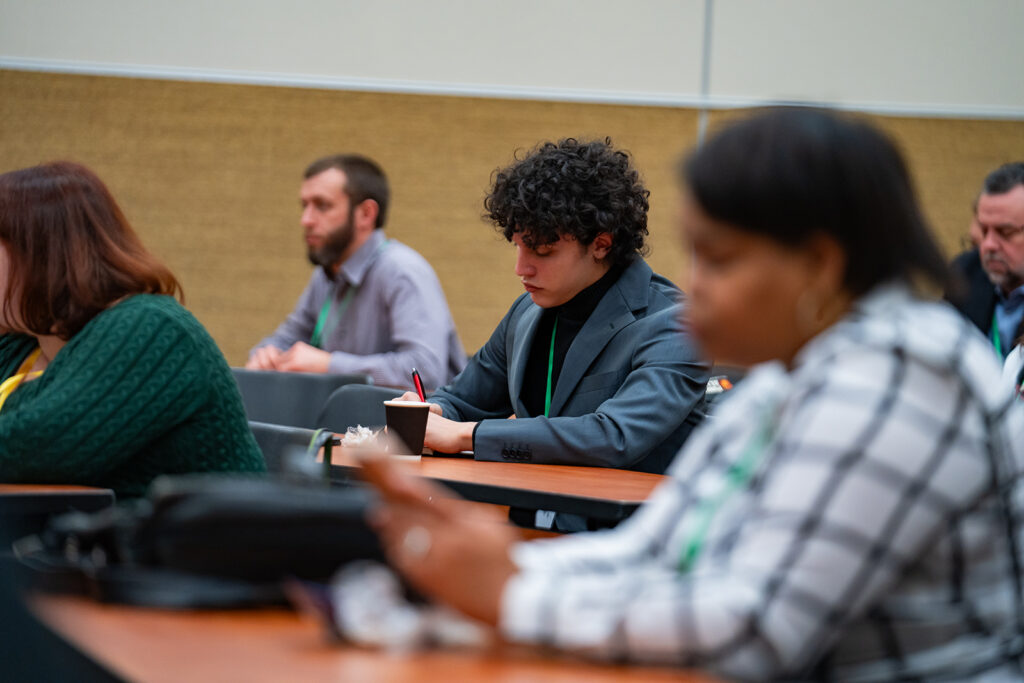
What topic or discussion during the 2024 Emerging Issues Forum stood out most to you?
Lydia: One of the breakout sessions that I went to was “From Unbanked to Saving.” I really appreciated the conversation because I felt like they really delved more into why society is the way that it is, why these policies exist and how they affect disparities in certain communities. I remember the Latino Community Credit Union talked about how they came together and formed their [credit union] on their own because of oppressive practices. They even gave us a hand-out of different banks that had lower cost fees and some with no costs. So I’m definitely going to keep that paper for a while.
Juan: The Duke Common Cents Lab was my favorite speaker. I think this is because how much more psychology and invisible factors come into play when it comes to the way that we spend money. Especially for college students, there is a massive social aspect to it. I think it’s the fact that we are exposed to so many people within our age range, with so many different financial backgrounds. Some of these people have money, and they can have certain financial habits, but a lot of other people do not, and they try to keep up with that lifestyle. That is just unattainable, especially since a lot of us don’t have a consistent source of income.
AyeSha: Since the Forum, I have been moving differently financially. I didn’t know I was in for such a treat, to be exposed to what was there for us. I remember Michelle Singletary, and the story she told us about how she became financially literate, aware, and competent. And then when she brought up the young people—Mary Esposito and Tiffany Grant—those girls were impactful! You know I also identified with the emotional shopping conversation. We often purchase out of ignorance and we don’t know how much we are hurting ourselves and our future generations.
Since the Forum, I have been moving differently financially. I didn’t know I was in for such a treat, to be exposed to what was there for us.
What is your experience with getting financial advice from social media platforms?
Lydia: I definitely am on TikTok more than I should be just “doomscrolling.” When I see financial education videos, I do think there is some valuable advice, and I tend to gather bits and pieces of information, or save it here and there. But with any form of social media consumption, I definitely think there are pros and cons. It’s all subjective. Your friends and family can give you completely wrong advice, and so can social media.
Juan: There is no barrier to entry when it comes to social media. Anyone can give advice about anything and it needs to be taken with a grain of salt. I know a lot of students will listen to what a TikTok will say a hundred times over reading a paper about it. I personally don’t take advice from people on the internet. I would rather have them introduce a concept to me, and then I do my own research about it.
AyeSha: Social media has a lot of stuff out there, a lot of people teaching you a lot of things, costing you a lot of money in return. That’s been my experience. At my stage, I’m a little bit older than everybody else. The ones who are even older than me are terrified of social media, especially because of identity theft and things like that. There is a lot of weariness as far as it relates to social media, and a lot of distrust.
Why are you passionate about the work you are doing regarding financial wellness?
Lydia: I wanted to go into macro social work because hopefully one day I will be a part of something that is working to make life a little bit better for people who are struggling. Before I went to graduate school, I was working as a CPS social worker at the county level. There are several issues with people who are in poverty, and a lot of issues couldn’t be solved through direct practice. I wanted to learn how to solve systemic level issues and policy issues. The programming at IEI’s Emerging Issues Forum were great conversation starters, and a good way to meet people who are like-minded and come up with ideas together.
Geraliz: Being a part of the Financial Literacy Club, we are helping NC State students have a better understanding of their financials and giving them the tools to make better and smarter decisions financially. I want to see my peers be in the position where they can retire comfortably, and be able to live how they want to live. That’s worth more than just working eight hours a day just to barely be able to get by. And even if doing what you love is not enough to make a living out of it, you have other sources of income to supplement that, and to keep doing what you love. You never stop learning—and hopefully we can spread that same feeling to make a better future for our generation.
AyeSha: I think financial literacy connects to everything! It becomes a part of your character. If your character is not right, you might compromise yourself. Everything is better when you have everything you need, and money is a very big part of that. If it was journalism, or if it was social work or education, money is at the root. When you understand how to have a relationship with money, then you know how to navigate the other areas. You live better and you know now how to help others too.
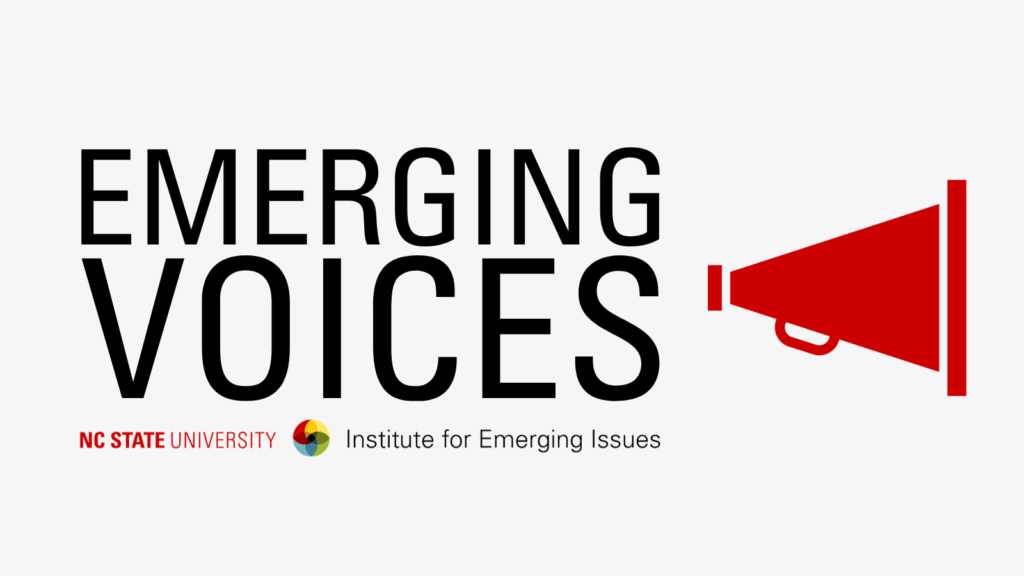
- Categories:
